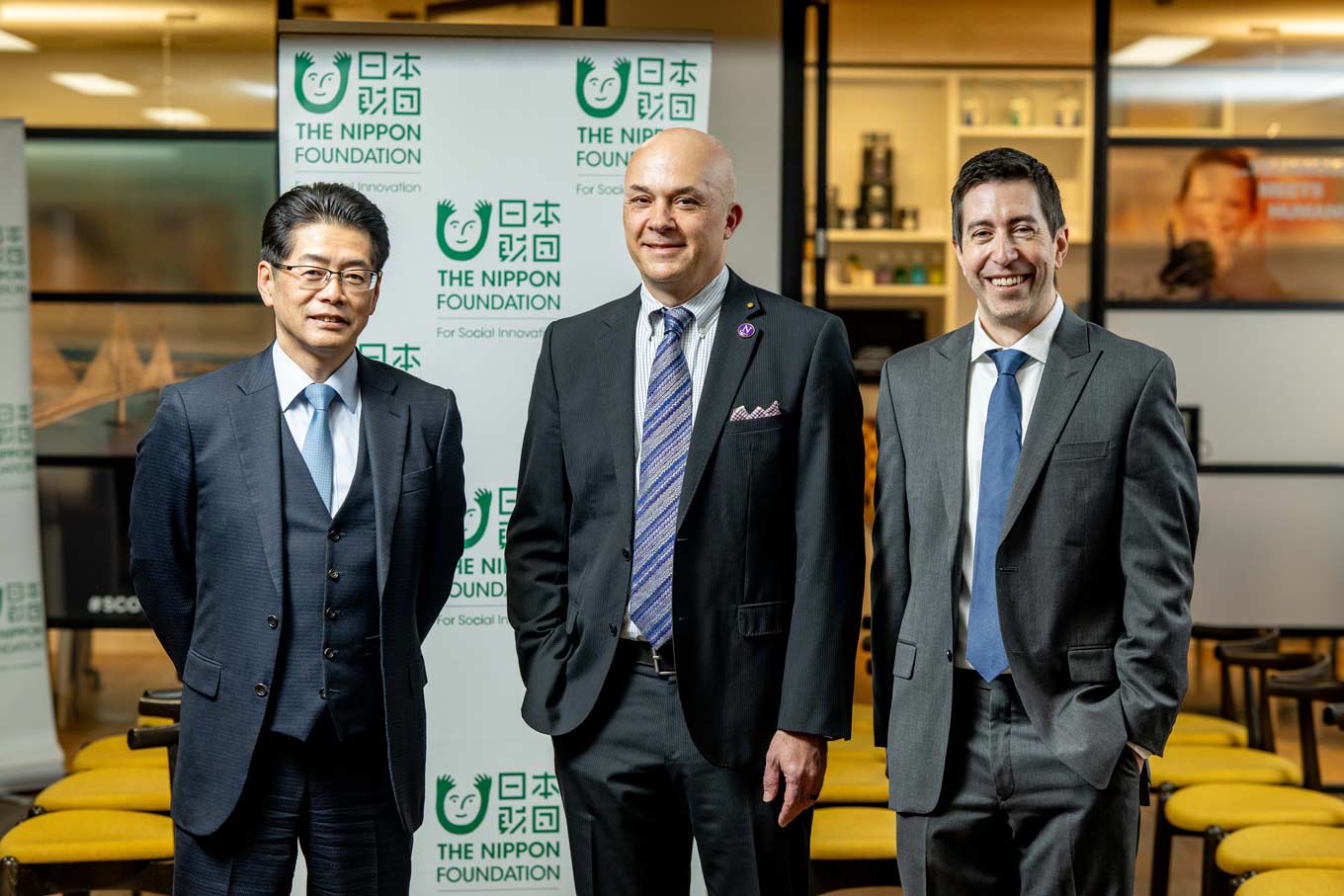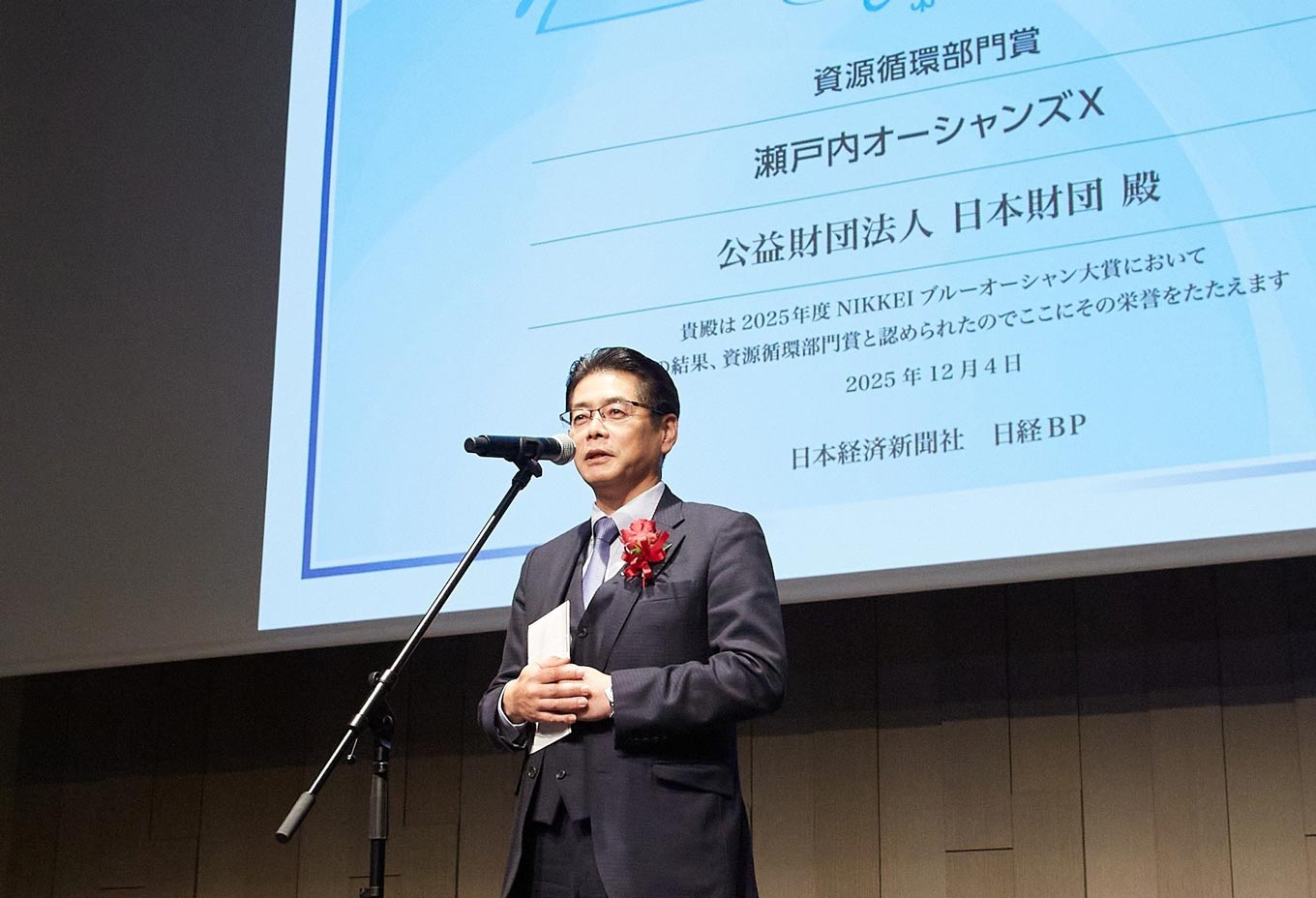From Classrooms to an Inclusive SocietyParalympian Miki Matheson discusses I’mPOSSIBLE education program
Miki Matheson is a Paralympian who won three gold medals in ice sledge speed racing. She was a project manager at The Nippon Foundation Paralympic Support Center (NFPSC, at the time)for the runup to the 2020 Tokyo Paralympics held in the summer of 2021, and was on the task force for the Japan launch of the International Paralympic Committee’s education program called I’mPOSSIBLE. She currently serves as a project manager for the Japanese Paralympic Committee (JPC), where she is responsible for advancing the Paralympic Movement through education. She is also a member of the International Paralympic Committee’s Governing Board. We recently talked with her about the I’mPOSSIBLE program’s launch in Japan and other issues related to persons with disabilities in Japan.
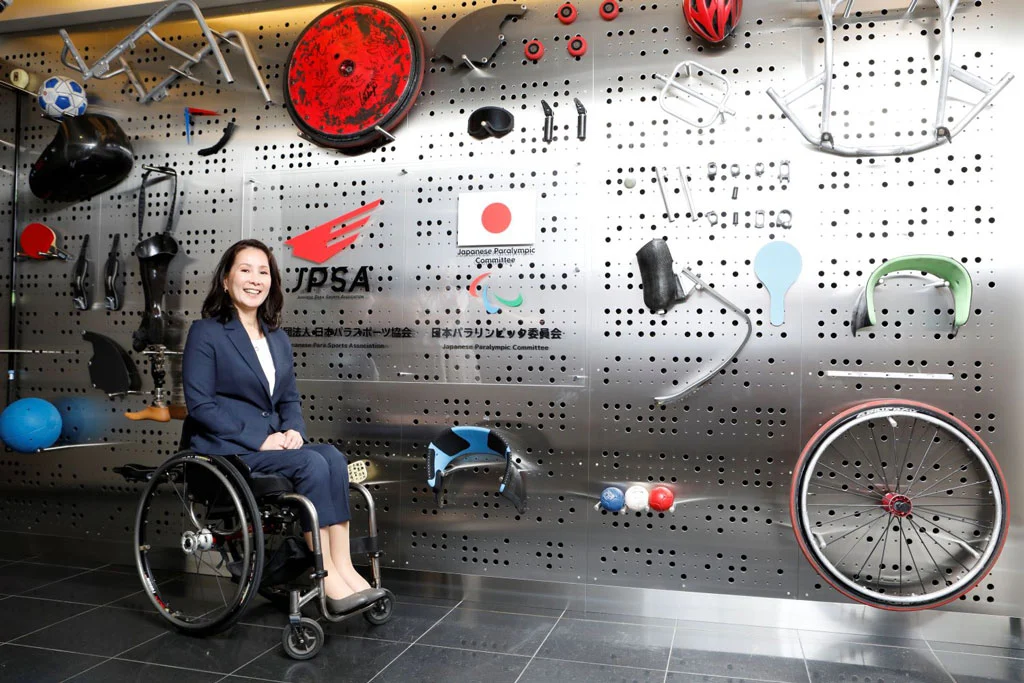
The I’mPOSSIBLE program was launched by the International Paralympic Committee (IPC) in 2017, and is now being used in 40 countries around the world. “I’mPOSSIBLE” Japanese Version, jointly developed by the JPC and NFPSC, was launched for elementary school students in 2017, followed by curricula for junior and senior high school students in 2018. The materials can be downloaded from a website, and more than 200,000 copies have been digitally distributed to date. Ms. Matheson explains that the IPC’s vision is to create an inclusive world through para sports, and the I’mPOSSIBLE program creates official teaching materials themed on the Paralympics to help children gain an understanding of what this means in more concrete terms. “I’mPOSSIBLE” Japanese Version is based on the international program but has been tailored to meet the needs of Japanese schools and teachers.
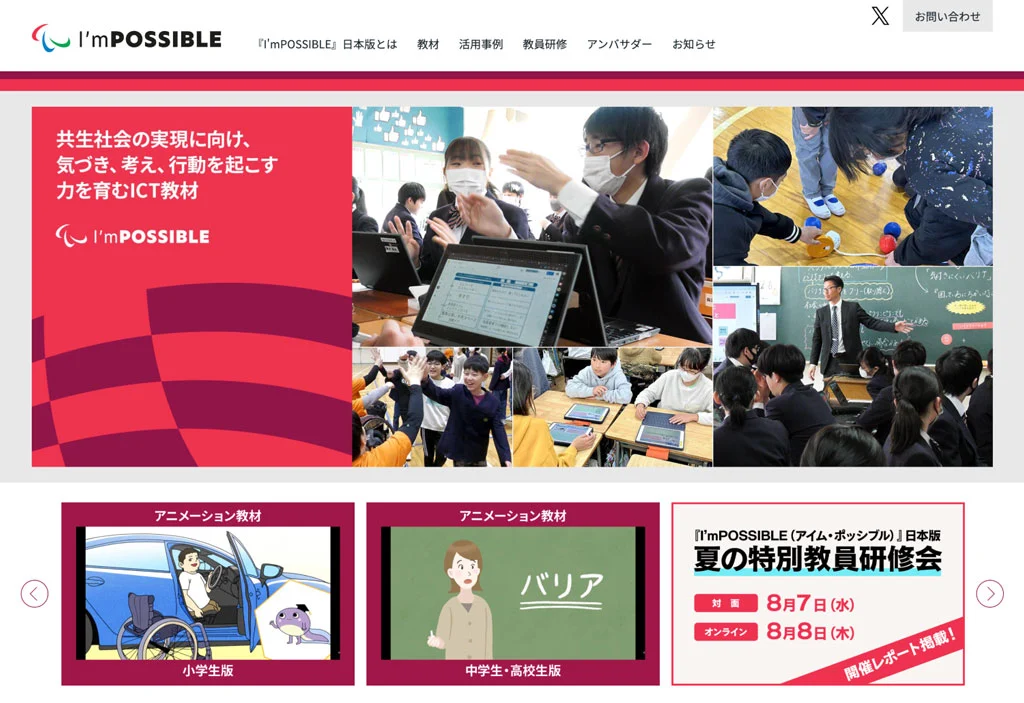
Teachers are not playing their traditional role in the I’m POSSIBLE lessons. Teachers are facilitators and also learn from their students. Ms. Matheson says, “People with disabilities are often seen as limitations, incapable, dependent, and hostile stigma associated with the assumptions. However, Parasports provides many ideas on how to adapt activities to different abilities and accommodate various needs. We are educating how to turn impossible into I’m POSSIBLE and cultivating inclusive mindsets in future leaders”.
Classroom teachers are also able to use the materials to help students understand diversity and the importance of respect for human rights. Ms. Matheson points out that there is also a “reverse education” effect, when children take home what they have learned in school through the I’mPOSSIBLE program and discuss it with their family, raising their awareness as well.
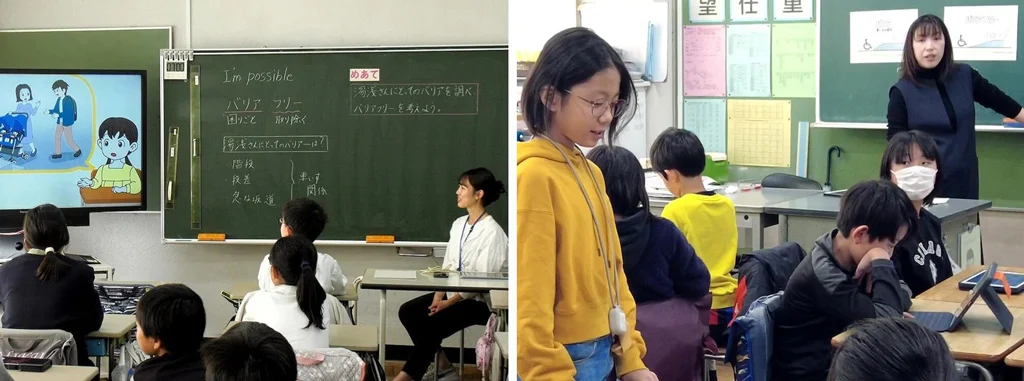
Ms. Matheson also notes that when she travels to other countries, the reaction of children when they encounter a person with a disability is generally the same, but the reaction of adults differs by country. When she travels to the United States, Canada, or Europe, people tend to have a “barrier-free mindset” in which people with or without disability receive the same interaction. In Japan, however, people tend to be more reserved and afraid that they will do something wrong, or feel they should not do anything because they are not a specialist. This made her think about differences in the way children are educated and the experiences they have with people with disabilities from a young age. Japan is now promoting inclusive education, but traditionally students with disabilities would go to special schools apart from other students, and in general in Japan there is an entrenched culture that separates people with different needs from the general population is acceptable to provide special accommodations for them. Awkwardness towards people with disability comes from a lack of knowledge and experience. When Ms. Matheson came across I’mPOSSIBLE, she realized that this is exactly what the program is trying to address.
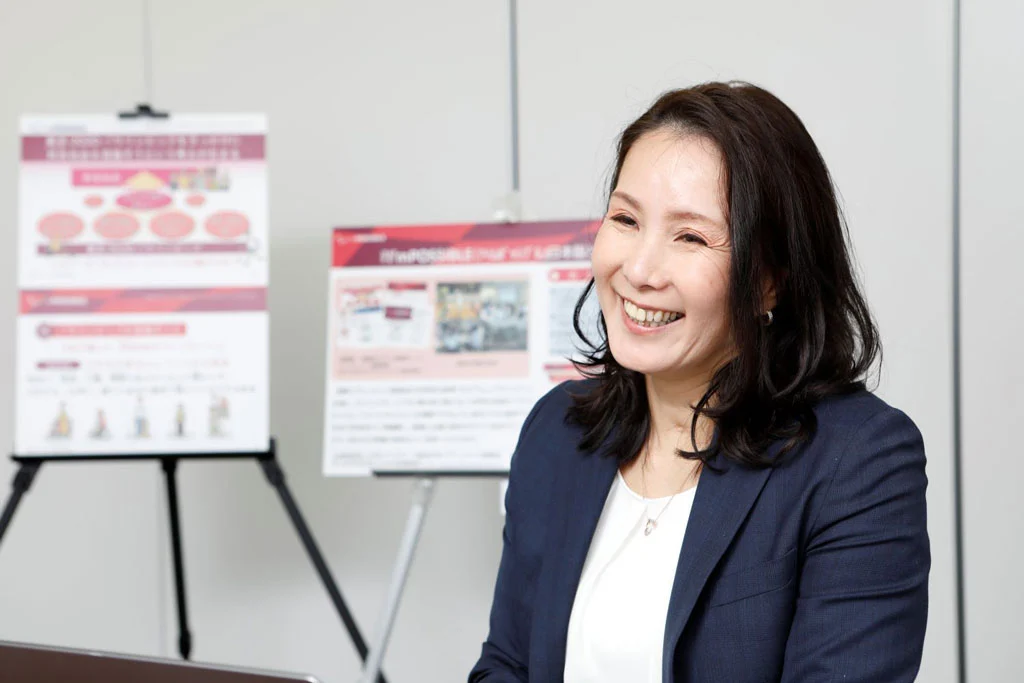
Ms. Matheson hopes that people will stop judging others based on gender, age, or disability, and if they have a question, to have the courage to ask that question directly rather than making a presumption. A scenario that often arises in I’mPOSSIBLE lesson is that a student will ask a question, and another adult will stop them by saying that the question is impolite. Of course, the person being asked the question can choose whether or not to reply, but the question contains the essence of learning. Children learn from what they see adults do and say, and if they think that some questions are acceptable and others are not, they will not deepen their understanding of disabilities or different needs. “I’mPOSSIBLE” Japanese Version is currently being used mainly in the fifth and sixth grades, but she hopes that it will be used in all broader grades as children develop.
She believes that exposure to a variety of differences as a child, with sensitivity and the ability to think freely before they develop stereotypes, is a positive thing both for the child and for society.
Contact
Global Communications Team
The Nippon Foundation
- E-mail: info_global_communication@ps.nippon-foundation.or.jp
